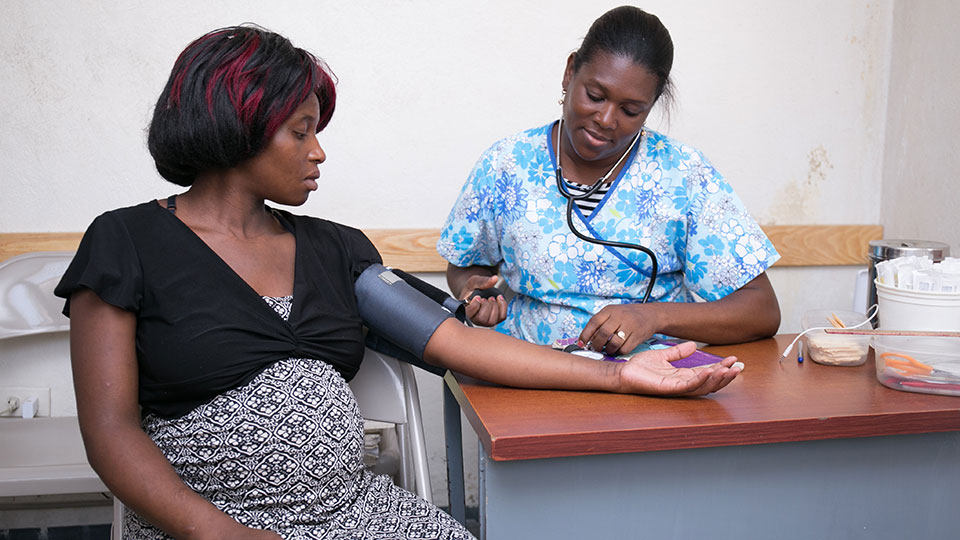Join the Call: Safe and Supported Health Workers

I wish I could say it’s been a few hard weeks for health workers. But no, it’s been a series of hard and deadly months. Back in November, I remember watching reports of hospitals under siege and inoperable in Gaza. Simultaneously, in Haiti, a hospital was surrounded by gangs of armed men. Supplies and personnel cutoff—leaving lives in danger. It’s hard to accept that four months later, those harrowing reports have only grown worse.
I realize the circumstances of war and conflict put civilians at great risk. But what’s more concerning is the targeting of health workers and patients in places of hope and healing—places that provide care, regardless of race, religion, or affiliation. This is the kind of care health workers do daily. But now, it’s at a risk to their lives.
Right now, in Haiti, where members of CMMB live and work, hospitals are being ransacked and robbed of the supplies that are critical to lifesaving interventions. Health workers are struggling to continue care during these grim circumstances. But the truth is, even traveling to a health facility in Port-au-Prince, depending on the gang violence in a neighborhood, requires a health worker to take on significant risk.
Sadly, the targeting of hospitals and health workers is not a new phenomenon. From hospitals in Kyiv and Khartoum to the Nuba Mountains of Sudan, where CMMB supports the Mother of Mercy Hospital, violence has made the delivery of healthcare treacherous. At Mother of Mercy, Dr. Tom Catena, an American physician and humanitarian affiliated with CMMB, tended to patients while bombs fell over head during Sudan’s civil war. In Pakistan, polio vaccination outreach teams were made targets.
There are numerous other incidents in warfare, and in times of insecurity, where caring for the sick or protecting public health has put the lives of health workers on the line. And, these incidents are increasing. We do not have to look further than the attacks and criticism of public health workers in the United States promoting and delivering Covid-19 vaccines, to know that protecting the health of others can put your own health in danger.
I have worked in international public health for 30 years, but I am not a clinician. To me, health workers are heroes. That’s why I started the Frontline Health Workers Coalition in 2012 alongside other enthusiastic colleagues. Our goal was to elevate and celebrate the work of health workers, from physicians and nurses to community health workers, who reach families isolated from care everywhere from South Sudan to inner-city Newark, NJ.
We gave health workers from around the world the megaphone to talk about their work and their needs, and we began rethinking our language around the global health workforce and international development. Some discouraged our use of the word “frontline” for its alignment with the military. Sadly, today, it feels appropriate.
When asked about who a frontline health worker is, I say they’re the midwife delivering a baby; the nurse administering your vaccine; the woman coaching a new mother to breastfeed; or the EMS worker arriving on the scene of an accident. These are our first line of defense. It’s in this way that I’ve always seen health workers as selfless heroes. Never did I imagine that in taking on that role, they would also become targets of attack. Yet, never has this reality been more clear than it is today.
This World Health Worker Week is an opportunity. Increased investment in the world’s health workforce has never been more essential. I am urging my colleagues and friends to elevate the voices of health workers, recognize the sacrifices they make to serve, especially those in places of war and conflict, and tell our policy makers that you too are joining the call for a safe and supported health workforce.